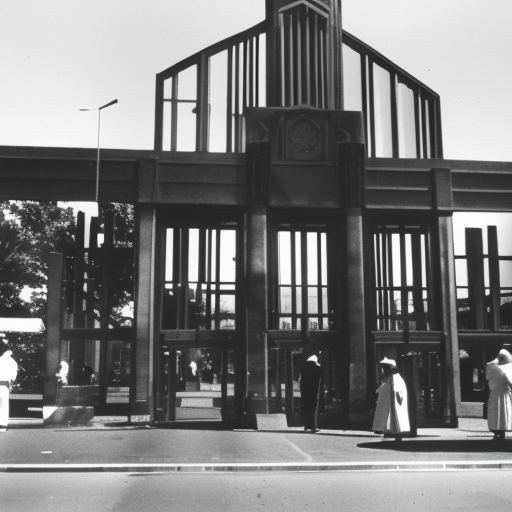Summary:
The Hebrew Benevolent Congregation Temple bombing, also known as the Atlanta Temple bombing, occurred on October 12, 1958, when a group of white supremacists detonated dynamite at the Hebrew Benevolent Congregation Temple in Atlanta, Georgia. The bombing was a targeted attack against the Jewish community and was one of the most significant acts of anti-Semitic violence in the United States at the time.
Background:
During the mid-20th century, the Civil Rights Movement was gaining momentum in the United States, challenging racial segregation and discrimination. However, this period also witnessed a rise in white supremacist and anti-Semitic sentiments. The Hebrew Benevolent Congregation Temple, commonly known as The Temple, was a prominent Jewish synagogue in Atlanta and had been a target of hate crimes in the past.
The Bombing:
On the night of October 12, 1958, a group of white supremacists placed sticks of dynamite outside The Temple and detonated them. The explosion caused extensive damage to the building, destroying the front entrance and shattering windows. Fortunately, no one was inside the synagogue at the time of the bombing, so there were no casualties.
Investigation and Arrests:
Law enforcement agencies launched an investigation into the bombing. However, progress was slow, and it took over a decade to bring the perpetrators to justice. In 1977, the FBI arrested and charged Robert Edward Chambliss, a known white supremacist, with the bombing. Chambliss was a member of the Ku Klux Klan and had a history of involvement in racist activities.
Legal Proceedings:
Chambliss was tried in 1977 and found guilty of murder, specifically for the death of a young African-American girl who was killed in a subsequent bombing in Birmingham, Alabama. He was sentenced to life in prison. It wasn’t until 1980 that Chambliss was also convicted for his role in the Atlanta Temple bombing. He received an additional ten years in prison for that crime.
Legacy and Impact:
The Hebrew Benevolent Congregation Temple bombing had a profound impact on the Jewish community in Atlanta and across the United States. It served as a stark reminder of the persistence of anti-Semitism and the need to combat hate crimes. The bombing also highlighted the importance of strengthening laws against hate crimes and protecting religious institutions.
Conclusion:
The Hebrew Benevolent Congregation Temple bombing was a targeted act of violence against the Jewish community in Atlanta. Although it took years to bring the perpetrators to justice, the bombing served as a catalyst for increased awareness and action against anti-Semitism. The event remains a significant chapter in the history of hate crimes in the United States and serves as a reminder of the ongoing struggle for tolerance and equality.












